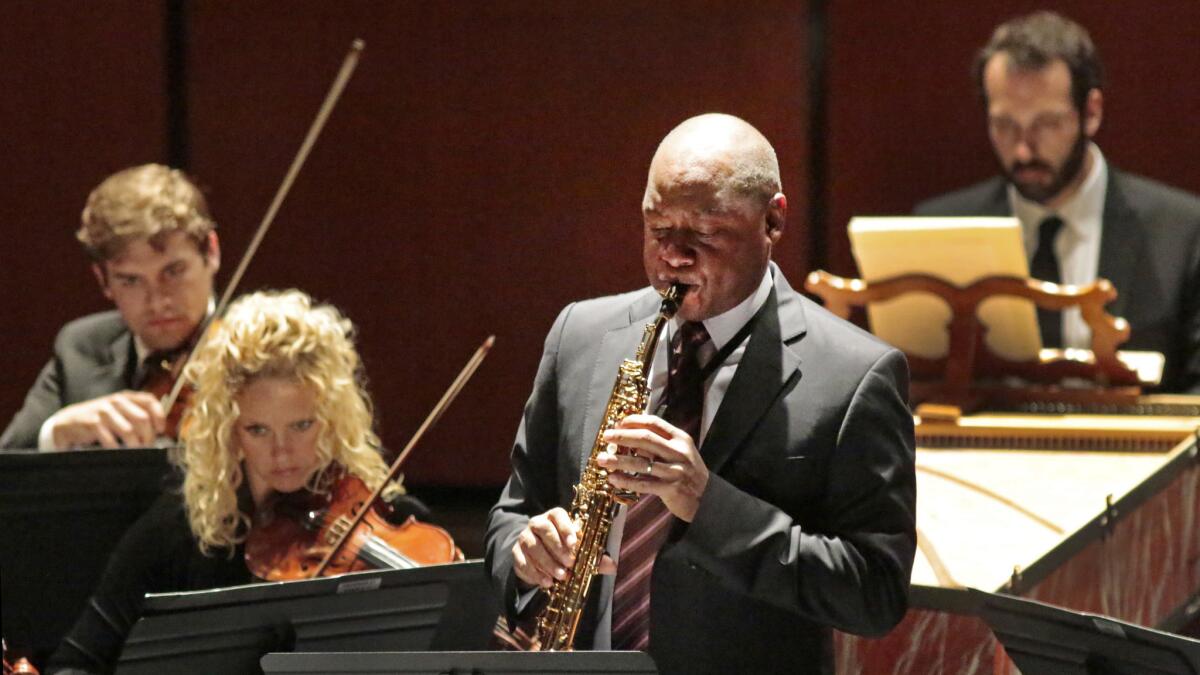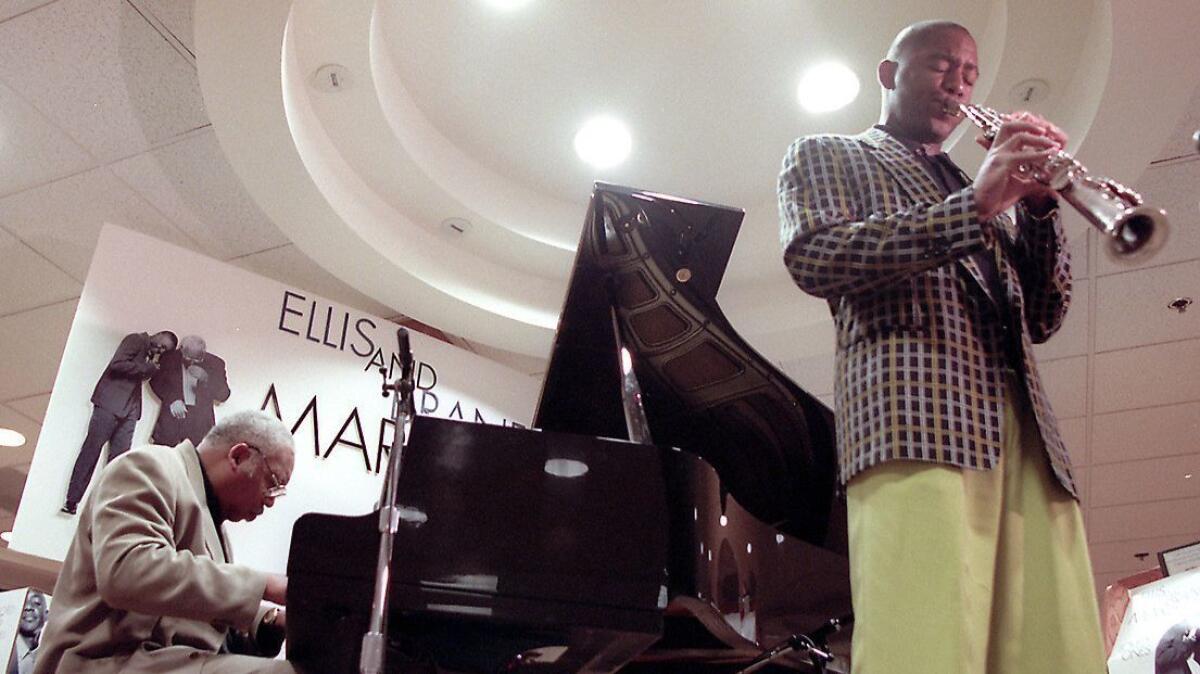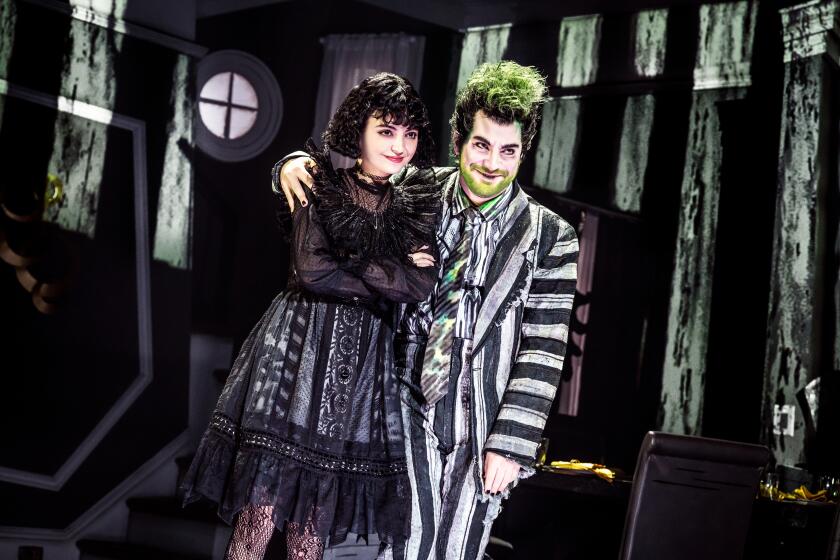Famed jazz musician Branford Marsalis heads to Irvine Barclay Theatre

Branford Marsalis grew up in a house of chaos and music.
His New Orleans home, burdened with quartering the natural mayhem of six brothers, served as the incubator for what many declare the “first family of jazz.”
The eldest of the siblings, Marsalis has become one of the most prominent saxophonists in the country, claiming three Grammy Awards and working with the likes of Miles Davis, Dizzy Gillespie and Herbie Hancock.
He’ll be performing on April 14 with his Branford Marsalis Quartet at the Irvine Barclay Theatre.
Marsalis, 57, is the eldest son of jazz pianist Ellis Marsalis. He and three brothers — Wynton, Delfeayo and Jason — went on to play jazz like their father.
Wynton Marsalis has reached a similar level of success in music as Branford, earning nine Grammy Awards and a Pulitzer Prize for Music.
Considering his prominent role in the modern jazzscape, it’s unexpected that Marsalis’ childhood ear was enticed by popular forms of music like R&B.
He was more likely to listen to the likes of James Brown while growing up than the honeyed, saxophonic tones of Charlie Parker.
But that variety of interest lent itself to the development of a unique jazz style.
“Though it’s not necessarily something anybody could identify because it sounds like jazz,” Marsalis said by phone, “everything you play over the years ends up back in your playing.”
In 1994, Marsalis collaborated with the famed Gang Starr producer, DJ Premier, on the album “Buckshot LeFonque,” which fused jazz with rock, pop, R&B and hip-hop.
Along with the jazz legends he’s worked with, he’s played with Sting and the Grateful Dead.
Marsalis said his ability to venture outside the lines of any one genre is atypical for most musicians.
“How many rock singers sing opera?” he said. “In popular culture, it’s best to stay in your lane. Your fan base will not take the trip with you and I understand that.”
But, success has followed Marsalis on his meandering musical road. He reached what some consider the apex of musical success in 1992 when he claimed his first Grammy Award for best jazz instrumental performance for “I Heard You Twice The First Time.”
“I guess it was OK,” Marsalis said of receiving the award. “The Grammys are an industry award. It’s nice when the industry says they like you. It doesn’t mean the record is good. The records I have made since winning my last Grammy are measurably better than the ones I won awards for.”
Marsalis claimed another in 1993 for best pop instrumental performance of “Barcelona Mona” and again in 2000 for best jazz instrumental album for “Contemporary Jazz.”
“Branford is in the league of the best — a brilliant classical and jazz musician,” said Jerry Mandel, president of the Irvine Barclay Theatre. “He is technically one of the best saxophone players in the world.”
Mandel instituted a jazz series at the Barclay shortly after he became its president in 2015. As an amateur saxophonist and lover of all things jazz, he said he’s sought to bring the best in the genre to Orange County audiences.

The kind of jazz Marsalis and his quartet plan to perform at the Barclay will be different than much of the modern genre — it will be accessible, at least as accessible as jazz can be, as Marsalis believes the genre has devolved due to the pretensions of its modern masters.
“They prefer the complexity over the stuff that makes the music likeable,” he said. “Jazz was never super accessible, but it was to people who had the mindset to like it. Most of the music that is played now has lost those people.”
Marsalis sees jazz as being in the same place as it’s always been — in the underground — though instrumentalists have lost, or abandoned, the ability to play cohesively within a song.
“They play the hell out of their instruments — they just don’t play jazz very well,” he said.
For an example outside of jazz, Marsalis compared famed guitar ripper Joe Satriani with Rolling Stones axeman Keith Richards.
“Joe is a better guitar player,” he said. “But if you need a guitar lick on your song to make people love it all over the world, you get Keith Richards.”
When it comes down to it for Marsalis, music is entertainment, so jazz will always be an acquired taste.
Jazz is in no way easy for the average listener. The progressions are alien when compared to simple popular forms and improvisations can be dissonant. The lack of lyricism in instrumentally-driven songs also makes it harder for the listener to find definition within the abstract notes.
“Most people struggle with music that doesn’t have words because they have abdicated their sensibilities to the lyrics a long time ago,” Marsalis said. “Jazz is always going to be a struggle. Most people who have regular jobs and live regular lives just want to be entertained by their music.
“They don’t want to learn anything and that’s fine with me. We play for people and they are surprised that they like it at the end.”
If You Go
What: Branford Marsalis Quartet performance
When: 8 p.m. April 14
Where: Irvine Barclay Theatre and Cheng Hall at 4242 Campus Drive, Irvine
Cost: $60 to $175
Information: (949) 854-4646 or thebarclay.org.
Twitter:@benbrazilpilot
All the latest on Orange County from Orange County.
Get our free TimesOC newsletter.
You may occasionally receive promotional content from the Daily Pilot.




